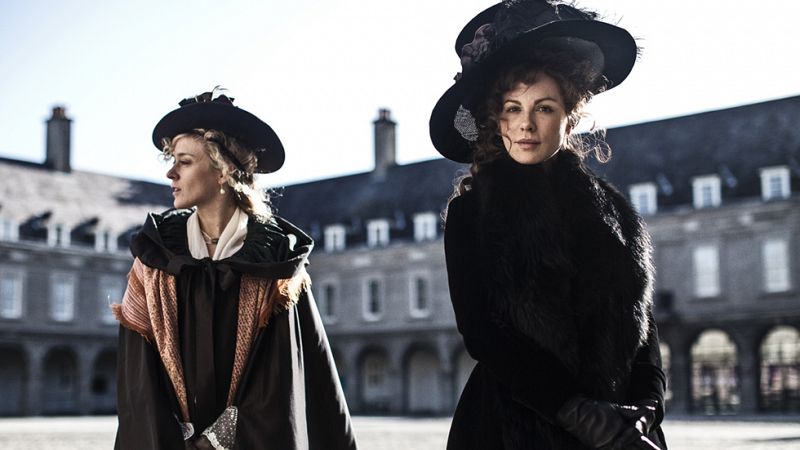

I wouldn’t say it was my favourite, though. I’ve read elsewhere that your favourite Jane Austen is Mansfield Park, but Patricia Rozema beat you to adapting that. When I read that I thought: “A-ha, this is like Jane Austen doing Oscar Wilde.” In the edition they had published Lady Susan. When I first read it, I didn’t know what a Gothic Novel was, so I didn’t know what a parody of a Gothic Novel was.

After Last Days of Disco I was in Paris, and I saw Northanger Abbey in a very good English language bookstore and I thought: “I should try this again.” I liked it. And then I read Pride and Prejudice and then read the rest and loved them. Then four or five years later, though my sister’s pressing, I read Sense and Sensibility, and liked it. I don’t know how I got to the end and I told everyone how bad she was, how overrated. I was moping in my room and I found Northanger Abbey-and I hated it. I was in this funk in the middle of my sophomore year after having been dumped cruelly by a woman who had led me on I was disheartened and distressed. Kiva Reardon: What was the first Jane Austen novel you read? While Love & Friendship is set in another era, it mirrors the themes of his other films: rules, politesse and a certain gentleness that abhors vulgarity.

After a 13-year hiatus, Stillman returned to his formalist form with Damsels in Distress (2013), in which a group of women try to rescue their fellow female college classmates from the tyranny of boorish bro culture (the film is loosely based on Stillman’s own time at Harvard).

It was The Last Days of Disco (1998) that cemented his comic, mannered approach to storytelling, as two editors in New York (played by Beckinsale and Chloe Sevigny) chase love in the club. Since Stillman’s beloved debut, Metropolitan, he has relished stories of upper class “struggles:” in the 1990 film, a group of debutantes find their hermetically sealed society disrupted by a new arrival in Barcelona (1994), an uptight Midwest boy’s ways are disrupted by his free-loving cousin. An adaptation of one of Jane Austen’s lesser known works, the novella Lady Susan, here Stillman has found his ideal match in the 18th century novelist: both revel in the gentle mockery of bourgeois social norms through the comedy of manners. “My daughter has proved to be cunning and manipulative-I couldn’t be more proud.” This loving adulation is spoken by Lady Susan (Kate Beckinsale) near the end of Whit Stillman’s fifth film, Love & Friendship, which chronicles the conniving successes of a widowed woman set on finding the perfect match for herself and her daughter.


 0 kommentar(er)
0 kommentar(er)
